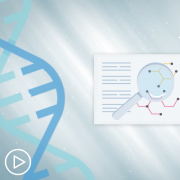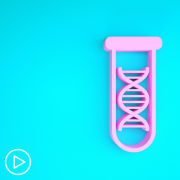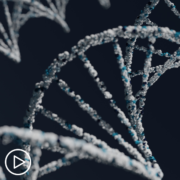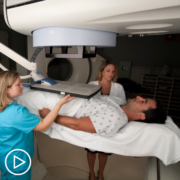What Do Prostate Cancer Patients Need to Know About Genetic Testing?
What Do Prostate Cancer Patients Need to Know About Genetic Testing? from Patient Empowerment Network on Vimeo.
What should men with prostate cancer know about genetic testing? Expert Dr. Tomasz Beer explains inherited mutations versus cancer-specific mutations and discusses the roles they can play in the development of prostate cancer.
Dr. Tomasz Beer is Deputy Director at OHSU Knight Cancer Institute. Learn more here: https://www.ohsu.edu/people/tomasz-m-beer-md-facp.
See More From INSIST! Prostate Cancer
Related Resources

Why Should You Ask Your Doctor About Prostate Cancer Genetic Testing? |

|

Prostate Cancer Treatment Decisions: How Do Genetic Test Results Impact Your Options? |
Transcript:
Katherine:
Excellent. Let’s talk a bit about genetic testing and the role it plays in prostate cancer. I’d like to start by defining a few terms that are often confusing for patients. First of all, what is a somatic mutation?
Dr. Beer:
Well, so let’s first start with what is a mutation. So, we all have DNA that is the code of life in every cell in our body in the nucleus of the cell, and that is where all of the encoding for all the genes that then identify the proteins that make up our cells in our body exist. A mutation is a change in the sequence of that gene of that DNA, a missing letter, or a letter that’s been replaced by another letter, that can lead to a faulty protein being made. Sometimes, a mutation can cause a protein to be activated inappropriately.
Otherwise, we can see situations where the protein is silenced and inactive when it’s needed. So, those are mutations. Now, somatic mutations occur in a cancer. The person does not carry those mutations in their genome. They’re not passed along to their children or inherited from their parents. They happen in the cancer itself, and that’s the nature of cancer. Many cancers have a propensity to accumulate mutations, and so, a somatic mutation represents a cancer-specific mutation.
Katherine:
What then is the difference between somatic and a germline mutation?
Dr. Beer:
Yeah. So, germline is an inherited mutation. That is a mutation that is in the genetic code that that individual is born with, almost always inherited from their parents.
And I say almost always because in rare circumstances, a new mutation emerges in the fetus and becomes a germline mutation, but almost always this is a mutation that’s inherited.
And an important thing to understand about those is that because it’s in the germline, in the parent DNA, that mutation is present in every cell in the body of that human being, including the eggs and sperm, and that’s how it’s then transmitted to the next generation. Those germline mutations, they predispose people to cancer, can turn out to be deleterious and can lead to the development of cancer, typically when an additional mutation develops, and the two together team up to begin the process of cancer development.










